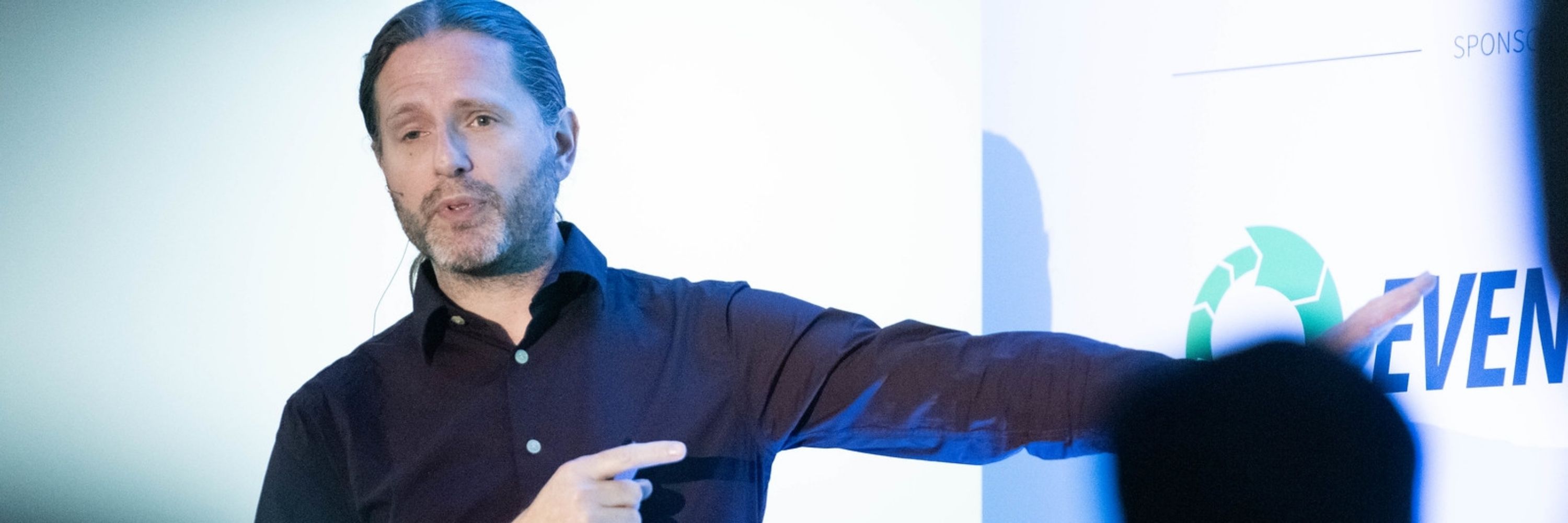
Trond Hjorteland
@trond.hjorteland.com
A student of open sociotechnical systems at Capra with a ghoulish sense of post-punk and a geeky interest in science and systems thinking. He/him.
#DDDesign
#SocioTechnical
#SoftwareArchitecture
trond.hjorteland.com
#DDDesign
#SocioTechnical
#SoftwareArchitecture
trond.hjorteland.com
Reposted by Trond Hjorteland
Hypothesis: Because "sociotechnical architecture" is necessary, but no way near sufficient? That sociotechnical is about the social being at least equally important as the technical. Conway is just a signal, an eye-opener to the real problem that is joint optimisation of the two.
November 6, 2025 at 4:07 PM
Hypothesis: Because "sociotechnical architecture" is necessary, but no way near sufficient? That sociotechnical is about the social being at least equally important as the technical. Conway is just a signal, an eye-opener to the real problem that is joint optimisation of the two.
Hypothesis: Because "sociotechnical architecture" is necessary, but no way near sufficient? That sociotechnical is about the social being at least equally important as the technical. Conway is just a signal, an eye-opener to the real problem that is joint optimisation of the two.
November 6, 2025 at 4:07 PM
Hypothesis: Because "sociotechnical architecture" is necessary, but no way near sufficient? That sociotechnical is about the social being at least equally important as the technical. Conway is just a signal, an eye-opener to the real problem that is joint optimisation of the two.
Reposted by Trond Hjorteland
“Anarchy doesn’t mean you can’t organise, but it should be done voluntary, functional, temporal and small”

November 6, 2025 at 11:31 AM
“Anarchy doesn’t mean you can’t organise, but it should be done voluntary, functional, temporal and small”
Reposted by Trond Hjorteland
Really do think it is risky to use that model to implement our IT systems, an the other way around, that we limit our framing to what we can do in code. What we implement is a reductionistic version of it, a closed system. The model we create for understanding should encapsulate the complexity.
November 6, 2025 at 3:47 PM
Really do think it is risky to use that model to implement our IT systems, an the other way around, that we limit our framing to what we can do in code. What we implement is a reductionistic version of it, a closed system. The model we create for understanding should encapsulate the complexity.
Reposted by Trond Hjorteland
It's also that people seem to read weird things into it, like all models are equally wrong, or all models are equally useful, or all models are useful on the same parameters, or that models are uniformly wrong or useful irrespective of context. I could go on.
October 28, 2025 at 8:29 AM
It's also that people seem to read weird things into it, like all models are equally wrong, or all models are equally useful, or all models are useful on the same parameters, or that models are uniformly wrong or useful irrespective of context. I could go on.
Am yes, one model require Contextualism as world view, while the implementation can use Formism or Mechanism.
November 6, 2025 at 3:47 PM
Am yes, one model require Contextualism as world view, while the implementation can use Formism or Mechanism.
Really do think it is risky to use that model to implement our IT systems, an the other way around, that we limit our framing to what we can do in code. What we implement is a reductionistic version of it, a closed system. The model we create for understanding should encapsulate the complexity.
November 6, 2025 at 3:47 PM
Really do think it is risky to use that model to implement our IT systems, an the other way around, that we limit our framing to what we can do in code. What we implement is a reductionistic version of it, a closed system. The model we create for understanding should encapsulate the complexity.
Said something along these lines in my talk at @dddeu.bsky.social and @virtualddd.com. I think we should treat modeling as we ought to treat systems thinking, namely as an epistemological tool. A way of framing things, making some sense of complexity.
November 6, 2025 at 3:47 PM
Said something along these lines in my talk at @dddeu.bsky.social and @virtualddd.com. I think we should treat modeling as we ought to treat systems thinking, namely as an epistemological tool. A way of framing things, making some sense of complexity.
Mostly my fault that we didn't though, as I was stuck at work most of the time. Next time!
October 25, 2025 at 3:57 PM
Mostly my fault that we didn't though, as I was stuck at work most of the time. Next time!
Reposted by Trond Hjorteland
What code reviews should not be:
* Ways to exercise power - it should be true peer reviews
* Done by seniors missing mentoring skills
* blaming or harming
* a miserable experience
* gate keeping (gates introduce delays)
* a must
@tdpauw.bsky.social #agilecam
* Ways to exercise power - it should be true peer reviews
* Done by seniors missing mentoring skills
* blaming or harming
* a miserable experience
* gate keeping (gates introduce delays)
* a must
@tdpauw.bsky.social #agilecam
October 1, 2025 at 2:29 PM
What code reviews should not be:
* Ways to exercise power - it should be true peer reviews
* Done by seniors missing mentoring skills
* blaming or harming
* a miserable experience
* gate keeping (gates introduce delays)
* a must
@tdpauw.bsky.social #agilecam
* Ways to exercise power - it should be true peer reviews
* Done by seniors missing mentoring skills
* blaming or harming
* a miserable experience
* gate keeping (gates introduce delays)
* a must
@tdpauw.bsky.social #agilecam

